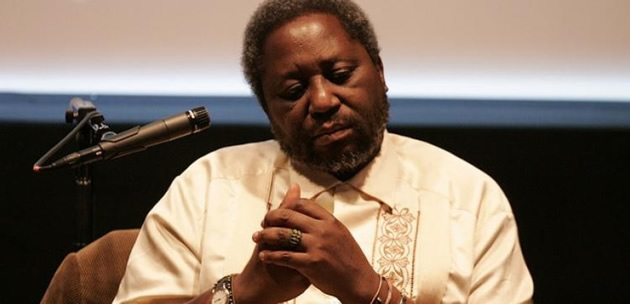Literary fraternity mourns Hove

Lovemore Ranga Mataire Herald Reporter
Writers in Zimbabwe have expressed sorrow at the passing on of prominent Zimbabwean writer Chenjerai Hove, who died on Sunday in Norway of liver failure.
In a statement, Zimbabwe Writers Association secretary-general Memory Chirere said the organisation was saddened by the death of one its founding members.
“We wish to express our deepest condolences to his family and relatives and to his many colleagues and admirers at home and across the world on this sad loss. This comes barely hours after burying another eminent writer, Freedom Nyamubaya.
“Chenjerai Hove, one of Zimbabwe’s internationally renowned writers, has poems in the trendsetting Zimbabwe war poetry anthology ‘And Now The Poets Speak’ (1981). He has published a number of individual poetry anthologies that include ‘Up In Arms’ (1982), ‘Red Hills of Home’ (1985), ‘Rainbow in The Dust’ (1998), and ‘Blind Moon’ (2003) making him one of the more anthologised Zimbabwean poets
He has household novels “Masimba Avanhu?” (1986), “Bones” (1988), “Shadows” (1991) and “Ancestors” (1996). “Bones” won the prestigious Noma Award for Publishing in Africa in 1989 and brought honour to Zimbabwe.
One may suggest that Hove writes about the powerless of society. His stock characters – Marita, Marume, Janifa, Chisaga, Miriro, etc – are little men and women in a world which does not care about the weak.
“Up to the time of his death, he had a well- known passion for peace, human rights and the dignity of all people. We shall forever cherish the power of his vision, his unique turn of phrase and his affable laughter. His outstanding work at ZIBF and ZIWU showed his keenness to work for the welfare of writers and artists,” said Chirere.
Another prominent writer and renowned lawyer, Petina Gappah, who is based in Switzerland, said it was sad to learn of Hove’s death whom she last met in 2009.
“I had a wonderful meeting with Chenjerai Hove in Oslo, Norway, in November 2009. He was insightful, funny and generous to the younger writers who were at the same festival. I did get from him an overwhelming sadness – he clearly missed his family, his land and his mother. I am very sorry that he did not see Zimbabwe again before he died. But I take some comfort in that he will be remembered with affection, admiration, respect and love,” Gappah said.
While Hove’s creative talent was not in doubt, other fellow writers felt that his stamina and relevance as an author was somewhat affected by his self-imposed exile. In an effort to endear with the “international” audience, Hove left Zimbabwe in a huff claiming persecution by the Government. He even claimed that there were several attempts on his life although there was no evidence to substantiate his claims.
Many critics feel that his going into exile was a catastrophic error in that he became removed from Zimbabwe as he sought to ingratiate himself with his international funders. He despised the idea of coming home and all those thinking of coming back because that made his claims of persecution absurd and fatuous.
“We mourn the death of Chenjerai as a loss to Zimbabwe’s literature. His works like ‘Bones’ are immortal. But I think as a personality he made some rather questionable choices. The writing community in the country will remember why there is no PEN Zimbabwe. But it is not in our culture to speak ill of the dead so we can only pray that his soul is resting in peace,” said an author who declined to be named.
At the time of his death Hove was living in exile as the International Writers Project fellow in residence at Brown University’s Watson Institute for International Studies.
A prolific poet, novelist and essayist, Chenjerai Hove was born in February 9, 1956 in Mazvihwa Village near Zvishavane and attended Kutama Mission and Marist Brothers Dete schools.
He trained as a teacher in Gweru and taught English at several schools while pursuing degree studies in literature and education with the University of South Africa (UNISA) and later at the University of Zimbabwe.
Hove’s literary output started at an earlier age as his mind wrestled with survival under an oppressive and discriminatory white colonial regime. He fits in the mould of Charles Mungoshi and Musaemura Zimunya in shaping the pre- and post-colonial literary landscape given his ability in crisscrossing his creative output in both English and the vernacular.










Comments